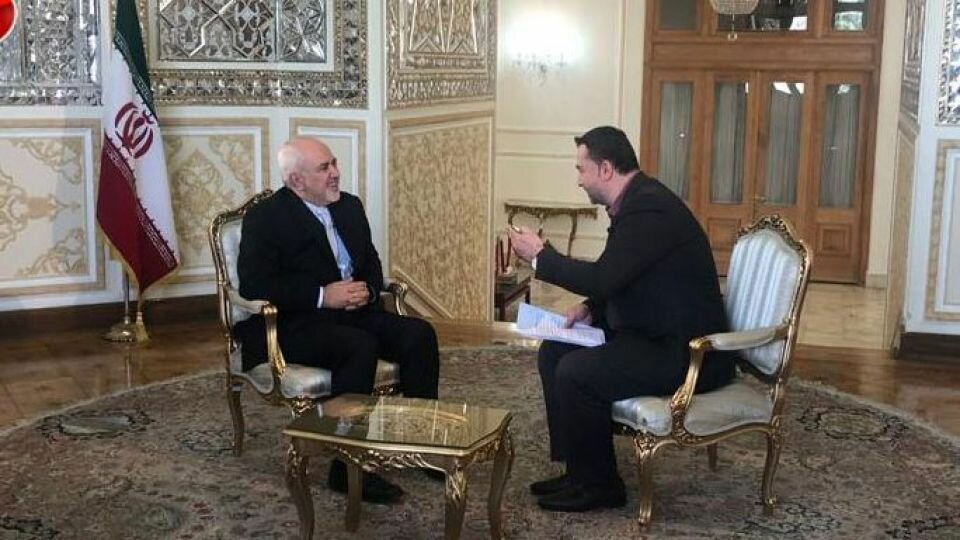U.S. pressure on Tehran rooted in Iran’s regional power: Zarif

TEHRAN – Iranian Foreign Minister Mohammad Javad Zarif believes that the U.S. has exerted greatest pressure on Tehran because of Iran’s power in the West Asia region.
“Today, Iran has the utmost power in the region. We are not in a difficult situation and the U.S. exerts pressure against Iran because it is concerned about Iran’s power in the region,” he told Al-Alam News Network in an interview aired on Friday.
Zarif said Iran draws its power from people.
“We have not reached this power through imposition of force on people. We have reached this power through right choice. This choice has always been the people. We have chosen the people and countered terrorism and extremism. So, we have power,” he pointed out.
He went on to say that Iran has an “open” attitude towards the Persian Gulf Arab states.
In an indirect reference to Saudi Arabia and the UAE, he said, “Unfortunately, there are two or three countries in the Persian Gulf that have chosen another path. We believe that the way they have chosen is not effective and is dangerous and harmful to themselves.”
Foreign Minister Zarif said on May 26 that he has proposed the “regional non-aggression pact” with Persian Gulf Arab countries during his three-day trip to Iraq.
----‘We pay attention to actions, not words’
Zarif also said that the U.S. administration sometimes speaks harshly and sometimes positively, however, what is important to Iran is actions and not words.
The U.S. has launched an economic war against Iran and threatens others if they seek to have relations with Iran, he said.
“This is a policy that the U.S. must abandon. This policy must be stopped. This is the policy of bullying and economic terrorism that must be stopped,” he insisted.
The chief diplomat said such policy will not work against Iran.
However, Zarif said that Iran is so powerful that it can stand against any threat.
Elsewhere, he said that the issue of talks with the U.S. should be decided by the country’s top officials.
“We believe that the prerequisite to this issue is that negotiation should have a meaning. Dialogue makes sense when the other side abides by its commitments. We held talks with the U.S. for several months. We do not see any difference between the former government of the U.S. and the current one. Certain people think that we have problems with Mr. Trump. It is not so. As I said, we negotiated with the U.S. administration but it did not fulfil its obligations. During Obama’s tenure, the U.S. did not fulfill all of its obligations. During Trump’s time, the U.S. administration clearly left the nuclear deal. It shows that there is no administration that we can hold talks with,” he lamented.
U.S. President Donald Trump unilaterally pulled Washington out of the nuclear deal in May 2018 and ordered reimposition of sanctions against Iran. The first round of sanctions went into force on August 6 and the second round, which targets Iran’s oil exports and banks, were snapped back on November 4.
Also, on April 22 the U.S. announced that Washington has decided not to extend waivers allowing major importers to continue buying oil from Iran. The waivers ended on May 2.
On May 8, Iran announced a partial withdrawal from some aspects of the pact, saying that the country would no longer adhere to some of the limits on its nuclear activities. It also threatened to step up uranium enrichment if it was not shielded from the sanctions’ effects within 60 days.
NA/PA
Leave a Comment